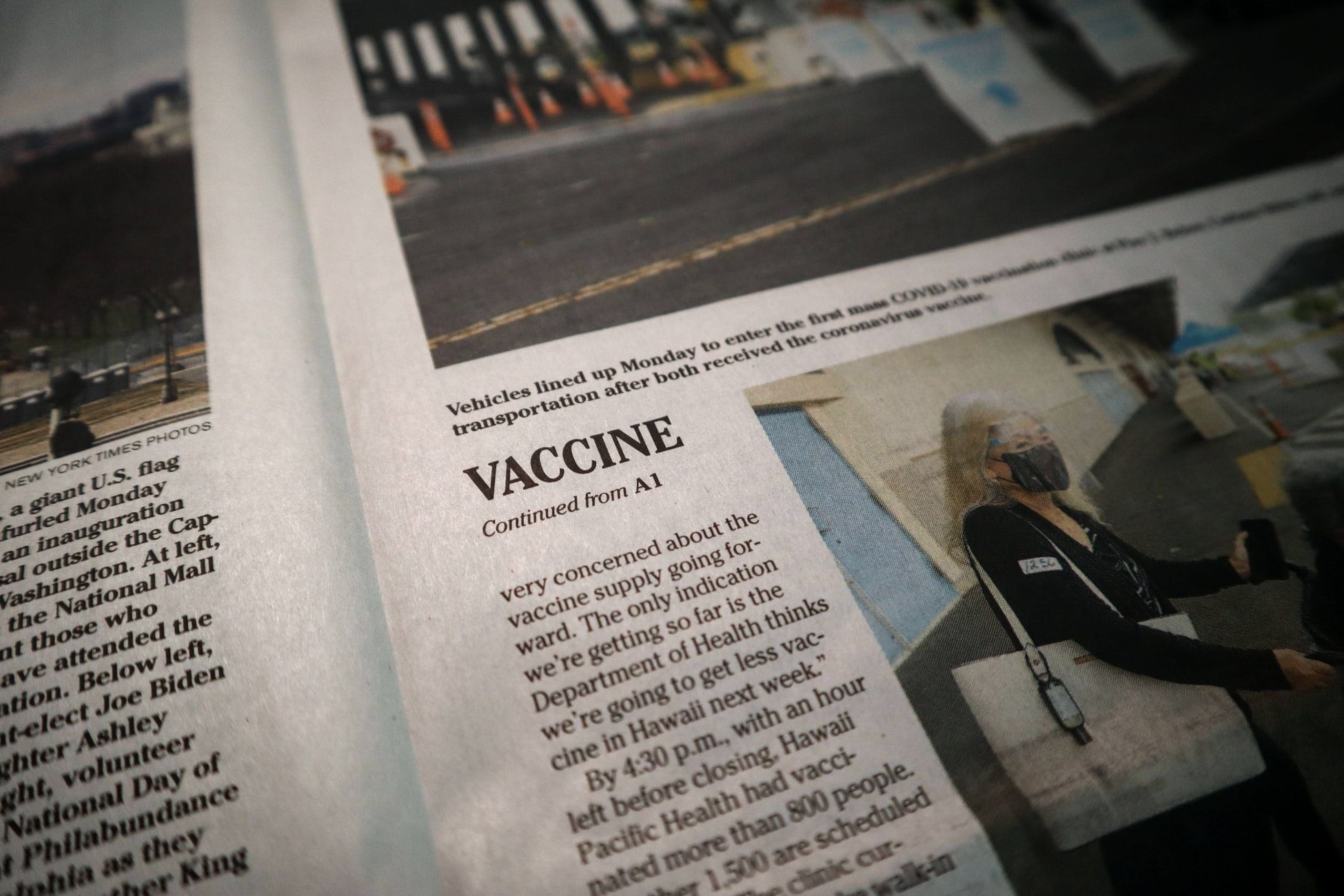A general dip in users relying on news organisations to get COVID-19
updates has been observed across continents in recent weeks, as per the report
from a survey conducted jointly by Reuters Institute and University of Oxford.
The report, published on May 27, compares results of the study
done in 2021 to the same done in 2020, through selecting sample sizes from several
countries in different continents.
Also read: Can you mix your COVID-19 vaccines? The good, the bad and the uncertain
The time period selected for the study is seen to be April 17 to April 23,
in both 2020 and 2021, while countries included in the study are United Kingdom,
United States, Germany, Spain, South Korea, Japan, Argentina and Brazil.
The test, using online samples of COVID-19 related news
consumption from each country, shows a dip across the board when it comes to citizens’
reliance on news organisations as a source of information.
While UK numbers display the percentage of people getting
their COVID-19 news from the media coming down from 59% to 46%, the trend is followed
across the board, except South Korea, where the percentage in both 2020 and
2021 has remained the same (77%).
In the United States, the percentage is shown to have downed
from 54% to 36%, whereas Germany shows a 8% dip from 47% to 39%. Same goes for
Argentina, which has seen a reduction of 74% to 67%.
In case of Spain, however, the decrease in consumption of COVID-related
news seems to be marginal, as the graph shows a mere 4% reduction in consumption.
Also read: Entire eligible population to get COVID vaccines by 2021 end: Centre to SC
Another take used in the study shows patterns on the basis
of age-groups when it comes to news consumption, and across the board, older
population (55+) in all eight countries in the evaluation appear to be consuming
the larger chunk of their updates from the media.







